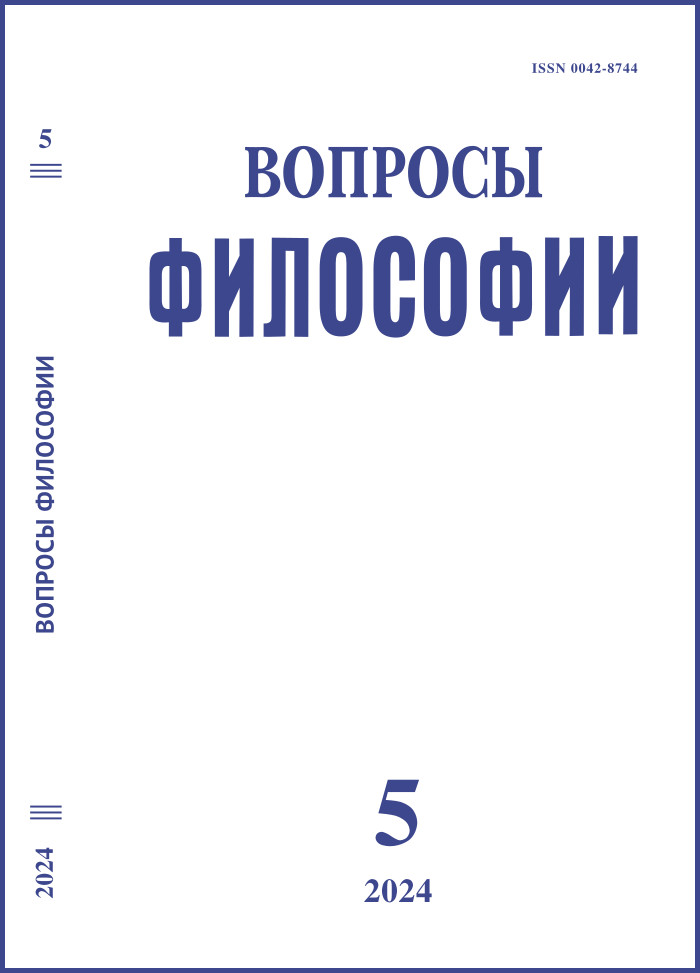Translation of Meanings in the Dialogue of Philosophical Cultures of Russia and Europe
DOI:
https://doi.org/10.21146/0042-8744-2024-5-111-121Keywords:
philosophy and society, dialogue of cultures, history of concepts, national identity, concept, word, collective mentality, civilizational identity, A. Trendelenburg, Yu.M. Lotman, dictionary, metanarrative, globalizationAbstract
The paper is a study of the problem of “civilizational consciousness”, according to which people of a particular country (for example, Russia) bear a collective mentality, different in its properties and characteristics to the mentality of other civilizations. The main aim of the paper is to observe the problem of determining the boundaries of Russian national self-consciousness through the prism of identifying the limits of translation of different terms in the context of intercultural dialogue, which corresponds with constructing solutions for numerous issues and global challenges of modernity, and could be interpreted as an indicator of the scientific and practical relevance of this type of research for
a wide range of humanities and social sciences. The author demonstrates that the methodological foundations for accomplishing a set of objectives formulated within the framework of the suchlike research of the collective mentality (e.g., of the Russian civilization) could be derived from the specific interdisciplinary direction – the “history of concepts”, with the orientation towards studying the features of the development and functioning of any cultural and civilizational community through the understanding of the language, in which this community was formed and continues the process of its evolution. Through the comprehensive historical and philosophical analysis of the applicability of the “history of concepts” methodology in its relation to the problem of translation of meanings (including the question of the limits of translatability of specific terms from one language to another), the author demonstrates the mechanism of translation of philosophical meanings developed in the West and continued its development in Russia.

